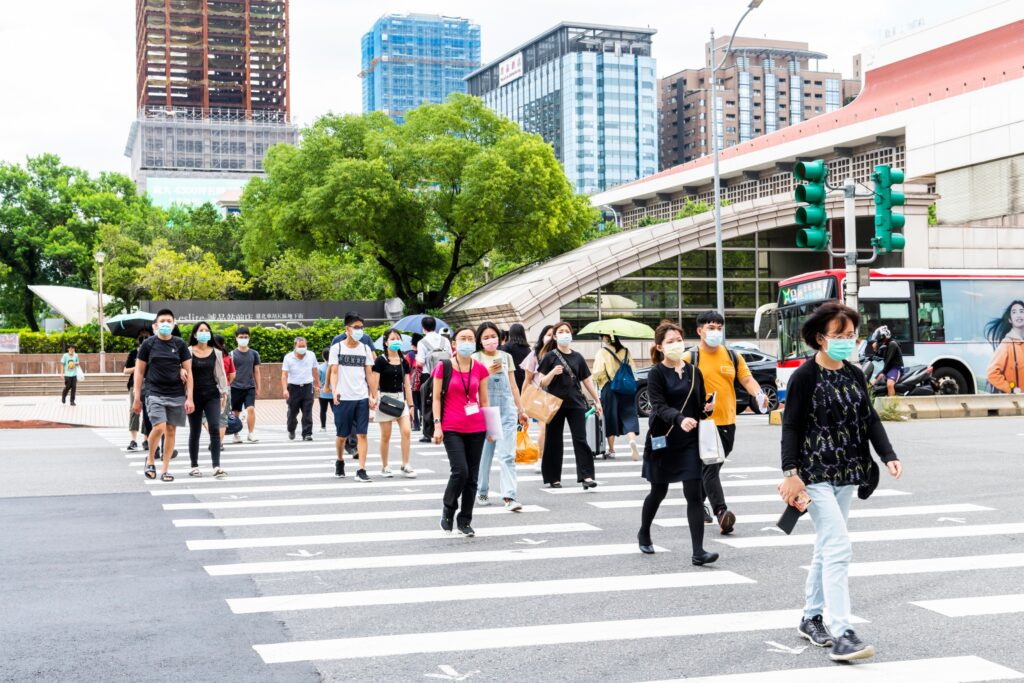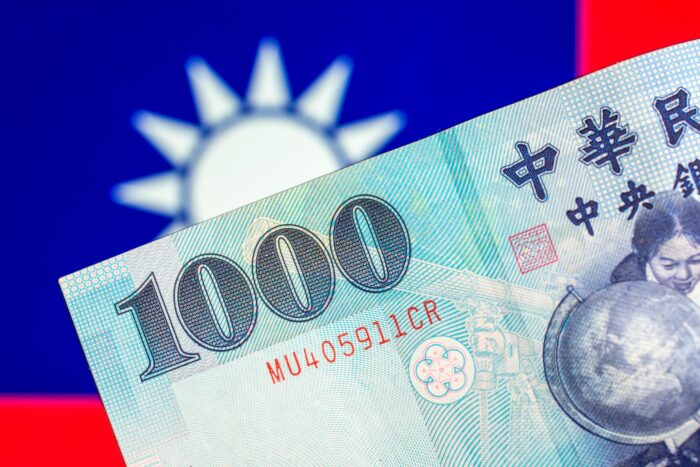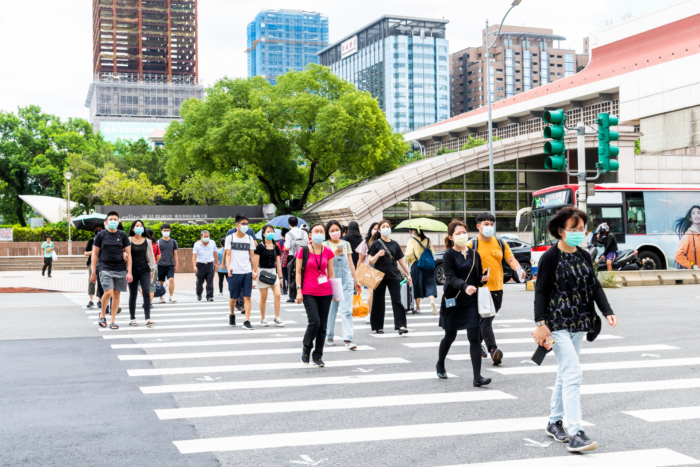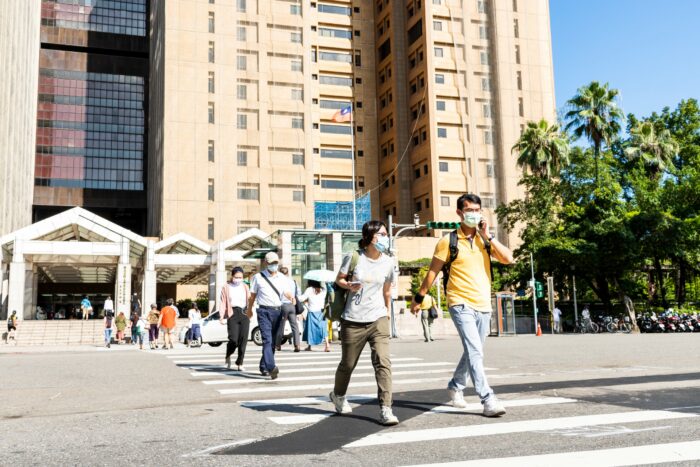Taiwan’s jobless rate hits 25-year low for April

Taiwan’s jobless rate held steady in April at 3.36%, as unemployment fell by 4,000, signalling sustained labour market stability.
Taiwan’s labour market shows signs of cooling

Taiwan’s unemployment rose to 3.34% in February, breaking a five-month decline due to seasonal post-holiday job shifts.
TSMC expands employee benefits to include pet care

TSMC’s new pet care benefit, part of the tFlex plan, gives employees US$250 annually to customise their benefits, including family care.
Taiwan sees progress in gender pay equality

Following the pandemic’s peak, Taiwan has seen the gender hourly wage gap narrowed to its smallest gap in 13 years.
Average rate of wages in Taiwan rose at end of 2023

Taiwan’s average monthly wages continue to see an increase within the last few months, especially in areas like the industrial and services sector.
Taiwan sees average monthly wages rise in recovery

Taiwan continues to enjoy rising employment, but at slower rates due to the rise in inflation amid post-pandemic recovery.
Engaging employees to help unblock better heart health in Asia

Novartis’ Ruth Kuguru discusses how the organisation is leading a heart health initiative, and its vital link to employee engagement and wellbeing.
Trade union coalition in Taiwan calls for pension rate hike

Employees under the current Labour Pension Act are calling for a higher increase in employer contributions to their pension funds.
Job vacancies in Taiwan hit record high as labour shortage persists

Taiwan’s number of jobs available has risen to 1.04 million this month, with an online job employment platform attributing this to the declining population.
Taiwan’s jobless rate drops to 22-year low as first-time jobseekers decline

Fresh graduates are finding jobs faster in Taiwan, which is a contributing factor to the lower unemployment rate.
Pay overtime without fail or else, Taiwan employers warned

Employees working overtime must be compensated by getting overtime pay and not by other methods, says Taiwan’s Ministry of Labour.
Disgruntled employees in Taiwan lament stagnant salaries

Only a quarter of Taiwan’s workforce received a salary increasement in 2023, with some employees having to endure years of salary stagnation.
Inflation drives down real earnings in Taiwan despite increase in wages

Wages rose from January to June earlier this year, but also saw a drop in earnings for the first time in seven years.
Taiwan’s job market sees increased demand for AI-related roles

Demand for AI expertise is surging as employers seek individuals proficient in ChatGPT, Midjourney, and Stable Diffusion.
New sexual harassment laws to be implemented in Taiwan

Taiwan’s federal government is looking to amend sexual harassment laws that will place heavier punishments on offenders in positions of power.
Taiwan rejects calls for nationwide shorter workweeks

A four-day workweek has been rejected by Taiwan’s Ministry of Labour due to concerns over its impact on sectors and business competitiveness.
AI interactions may have detrimental effects on employee wellbeing

While AI is continuing to reshape the workplace, organisations need to do more to regulate how employees interact with AI systems.
Employers in Taiwan grapple with ageing workforce

As a result of declining birth rates, fewer young Taiwanese 15-29 are employed, while employees in other age ranges are on the rise.
Taiwan sees steepest drop in average monthly wages in seven years

A sluggish economy and inflation lowered monthly wages 0.19% year-on-year, the Directorate General of Budget, Accounting and Statistics reported.
Employees in Taiwan earned more to kick off 2023

Average regular wage increased 2.3% year-on-year in January 2023, despite inflation raising the consumer price index.
Taiwan encourages more women to consider part-time employment

Taiwan’s female labour force participation trails behind countries like Japan and South Korea, partly due to negative public perception of part-time jobs.
Increase in off-hours work among employees in Taiwan

A survey by the Ministry of Labour found that more employees are having to spend more of their leisure time to address work-related issues.
New labour policies taking effect in Taiwan next year

In addition to raising the minimum wage floor, premiums for Labour Insurance and National Health Insurance have also been revised.
Employees in Taiwan less optimistic about pay raise in 2023

A survey in Taiwan cited a weaker economic growth and employment outlook next year as the reasons for the downbeat sentiment.
Taiwan doles out NT$1.35 billion to cover workers’ wage hikes

The wage subsidies are available to local businesses experiencing revenue decline of 10% or more due to the pandemic.
Wage hike dampened by rising inflation in Taiwan

The inflation-adjusted remuneration of employees in Taiwan fell in September, despite an increase in salaries over the same period of the previous year.
Taiwan officially approves minimum wage raise

Taking effect from January 1 next year, the monthly minimum wage will be raised to NT$26,400 (US$855) and the basic hourly rate to NT$176 (US$5.7).
Most Taiwan firms reject proposed minimum wage hike

Many SMEs earn relatively low profits and would pass on the impact from a wage hike to their customers by raising product prices.
Taiwan trade group pushes for minimum wage hike cap

A larger increase might prompt companies to pass additional costs onto consumers, thus driving up prices.
Taiwan wants to equip workforce with AI skills

Unions can apply for subsidies to train workers in artificial intelligence (AI) to prepare the workforce for disruptions brought by a changing labour market.
